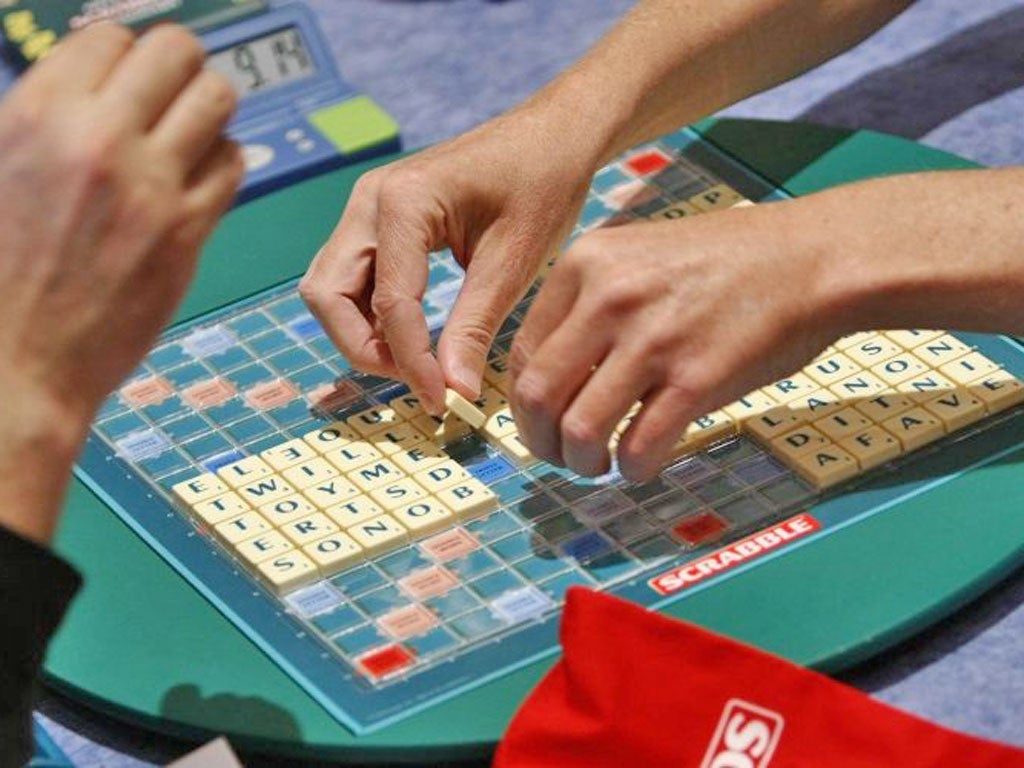In Scrabble, 'immortal' is the winning word, but what is the most beautiful?

Kevin McMahon, a trainee physics teacher, was yesterday crowned at the best Scrabble player in the UK, with the word "immortal" helping clinch victory in the final.
This year's British Matchplay Scrabble Championships were played out over the three days of the Bank Holiday weekend, with Mr McMahon emerging victorious from 120 players following a gruelling 21 rounds.
The competition is the flagship event of the Association of British Scrabble Players. After collecting the trophy and the £1,000 prize money at the Yarnfield Park Conference Centre in Staffordshire, Mr McMahon, from Dublin, said: "I'm really happy; it feels brilliant."
He said that while it was "looking good in the final" a score of 158 with the word immortal "sealed the deal".
While Mr McMahon was unable to use his favourite term, "brouhaha" in the final ("I don't really play the words for their beauty; I just do it for points"), his victory coincides with new research by Scrabble into what makes words beautiful.
Celebrities offering up their own favourite words include the actor and comedian Stephen Fry ("snuffle") and Jay Kay, from Jamiroquai ("whippersnapper").
Linguistic experts increasingly believe there may be a science behind what makes words sound beautiful, and there is even a name for their study – phonaesthetics.
Robert Beard, a poet and linguist who wrote The 100 Most Beautiful Words in English, said: "There is some science to it. We all agree that words with rounded vowels as well as the 'liquid consonants' ["l" and "r"] are often found in beautiful words."
He added that old-fashioned words in English had a "special kind of beauty" pointing to examples including "wherewithal", "erstwhile" and "forbearance".
The term phonaesthetics was coined by the English linguist John Rupert Firth in 1930, while the academic David Crystal was the first to draw up a matrix to attempt to identify the structural features shared by beautiful words.
His list of criteria included words with three syllables and a stress on the first. They also tended to use the letters "m" and "l", short vowels, "high-frequency consonants", and "at least three different manners of consonantal articulation".
The authors Edgar Allen Poe and J R R Tolkien both cited the compound noun "cellar door" as the most beautiful in the language, while Oscar Wilde picked "vermillion" as his personal favourite.
The last comprehensive attempt to find Britain's favourite word was carried out by a newspaper in 1980 when a readers' poll put "melody" and "velvet" equal first.
A group of elocutionists also once produced a list of what they considered the ugliest sounds including flatulent, phlegmatic, crunch and cacophony.
Celebrity choices
Sting 'laconic': adjective, defined as 'using very few words'
Hilary Devey (BBC Dragons' Den) – 'machination': noun, defined as 'the act of plotting'
Stephen Fry 'snuffle': verb, defined as 'breathe noisily through the nose'
Jay Kay (Jamiroquai) 'whippersnapper': noun, meaning 'an inexperienced person considered to be presumptuous or overconfident'
Susie Dent (Channel 4 Countdown) 'halcyon': adjective, defined as 'peaceful gentle calm happy and carefree'
Subscribe to Independent Premium to bookmark this article
Want to bookmark your favourite articles and stories to read or reference later? Start your Independent Premium subscription today.

Join our commenting forum
Join thought-provoking conversations, follow other Independent readers and see their replies